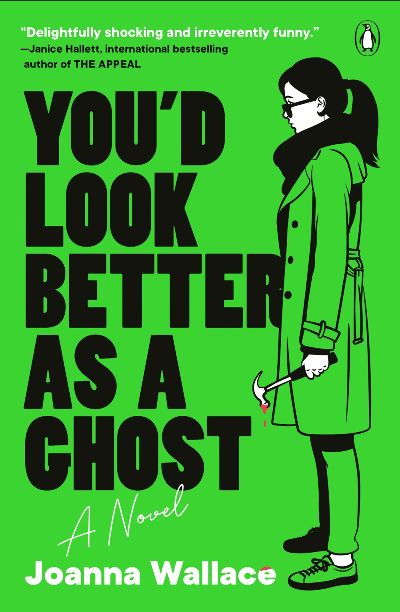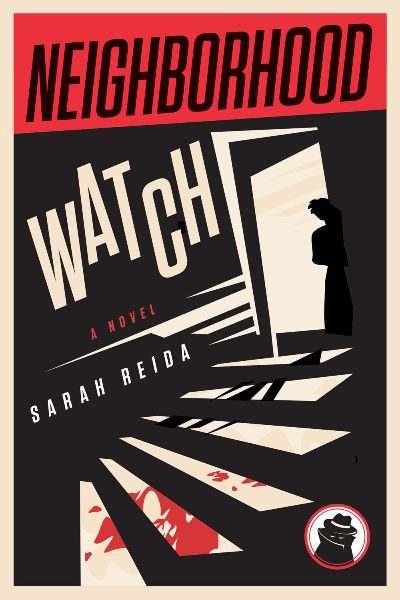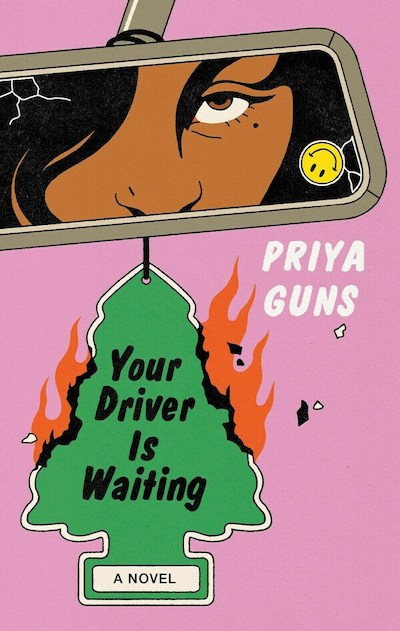Three women, who couldn’t be more different, come together over a man—known as Zander, Zachary, Xavier and more—whom they hate a great deal and love, perhaps, just a little. Marina is a former chef, now a full-time mom, who’s recently divorced and quite broke, but is enjoying rediscovering love with Xavier. Lilah is a withdrawn librarian who wins the lottery—literally. With funds pouring into her account, and falling in love with a man who is now her fiancé, Xavier, life couldn’t get any better. Then there’s Opal, the oldest of the trinity and a well-known health guru whose history with Xavier—confidence man, liar, thief, and lover—extends back the farthest. How the three women come together, and slowly learn to trust one another, is an absolute delight. But what to do with Xavier, currently a hostage in Marina’s basement, is even more of a laugh riot. Until it isn’t, and the book takes a very dark turn indeed. For all who loved Cohen’s Bad Men and Robert Thorogood’s The Marlow Club Murder.
Black Humor
Here’s a trend out of the U.K.: fun-loving, female serial killers. From doing away with the relatives (Mackie’s How to Kill Your Family) to offing abusive husbands (Casale’s The Best Way to Bury Your Husband) British women are ignoring old school, female solutions like poison or a tumble down the staircase and packing some heat, or, in the case of You’d Look Better as a Ghost, relying on a hammer to the back of the head. Claire, our serial killer and hero, is always planning her next kill, typically of someone who crossed her, starting back in childhood with her murder of her mother, who made Joan Crawford seem like Mother Theresa. Today the 30ish Claire is mourning (a real emotion!) her father’s death, while plotting the murder of Lucas, an arts administrator who rejected one of her paintings. But no sooner is Lucas diced and planted in the back garden—it makes you think twice about the Chelsea Flower Show—when one of the ladies in Claire’s weekly bereavement group let’s on that she knows all about Claire’s special hobby, and if she wants to live, Claire has to give in to blackmail. Is threatening a part-time, but highly successful, serial killer ever a good idea? That would be no. Witty and sophisticated, funny and fast-paced, this dark masterpiece is pure pleasure.
It’s early into lockdown in the UK, and Sally can’t take any more physical and psychological abuse from her husband—thankfully the kids are grown and out of the house. So she does the only thing she can do: she fights back, smashing him on the head with her iron skillet. But killing is the easy part. It’s disposing of the body that’s the challenge. Fortunately, Sally soon discovers that she’s not the only woman in the neighborhood with a husband rotting away in the basement, packed in cat litter (did you know? It absorbs both odors and fluids). Slowly, these women come together and create quite the self-help group, dubbed the Lockdown Ladies’ Burial Club, which is tasked with disposing of four bodies…and getting away with it. As impossible as this may seem—these women aren’t exactly hooked up with organized crime—they revel in their newly created freedom, gaining the strength to take on seemingly any challenge. As Sally says, “For too long I let a small man steal my joy and potential.” What’s remarkable is how Casale—with a decade of experience in the field of male violence against women—succeeds at moving between the women’s experiences with domestic violence in the past and the dark humor of their present situation, tacitly giving us permission to laugh at times. Well-written with plenty of surprises, twists, and turns to keep readers engrossed. Pair it with Bella Mackie’s How to Kill your Family.
This book could just as well be titled When the HOA Attacks or Ring Cameras on Steroids: A How-To. Oleander Court, a street in ritzy Alpharetta, GA, has it all. The fountain with $500 apiece koi, the perfectly maintained lawns (did I mention that HOA?), the perfectly Botoxed neighbors. But a few residents keep things from being too plastic. An artist, Helen Beecham, has moved in and while she likes to observe the others, she’s doesn’t love their snooty book clubs (at which the book is never mentioned) or other tortuous gatherings. A Korean American family, the Jungs, lives on Oleander, too, amid nasty comments; one neighbor in particular spreads the rumor that the mother barely speaks English, only Chinese. Lesbian couple Ray and Laura are hiding their rocky marriage and past secrets. And then there’s Adelaide, who formerly lived in a trailer park but is now married to a doctor and struggling to feel she belongs. Closed circle meets cozy when the nastier neighbors start getting bumped off in their homes, but with little attendant grisliness and dollops of dark humor. Come for the bitchiness, stay for the deep characterization of the oddball characters as well as the puzzling whodunit.
Damani Krishanthan’s life is drudgery. Her Amma, or mother, is housebound and expects to be waited on hand and foot, even leaving food all over her face for that extra touch of martyrdom. When not on Amma duty, Damani drives for an Uber-like service that’s taking an ever bigger cut of her proceeds, even her tips, as time goes by, so that she takes every customer who pops up, sleeping only at red lights. A few times in the book the character directly addresses the reader, telling us for example that the city that this story takes place in will remain nameless because cities are all the same now; the effect is to telegraph that she’s so tired that she can’t even maintain the façade of fictionality and will just talk to us, OK? The non-stop grind lifts a bit when Damani gets a cute customer, Jo, who then shows up at a club the cabbie goes to with friends. She’s unlike anyone Damani has dated, but the same is true for Jo, who is not used to being in spaces where she’s a minority, a situation with results that push Damani over the edge. This protagonist’s life is a slow-motion train crash that you won’t be able to look away from, and Guns paints a scathing portrait of the gig economy, both in literal terms and in terms of those considered a temporary novelty in relationships. A debut with shades of Elle Cosimano’s Finlay Donovan series, but also memorably and refreshingly unlike anything else.





